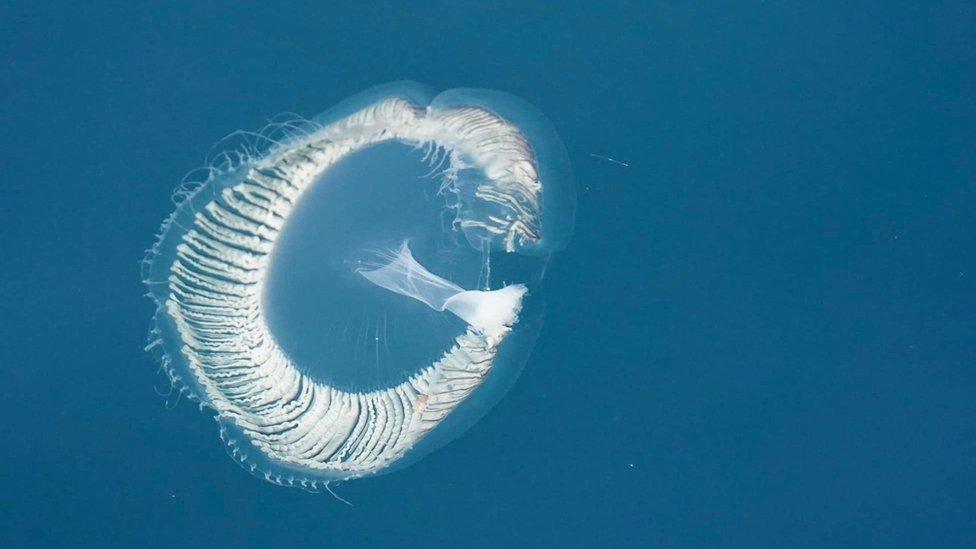Cold snap could have killed thousands of jellyfish
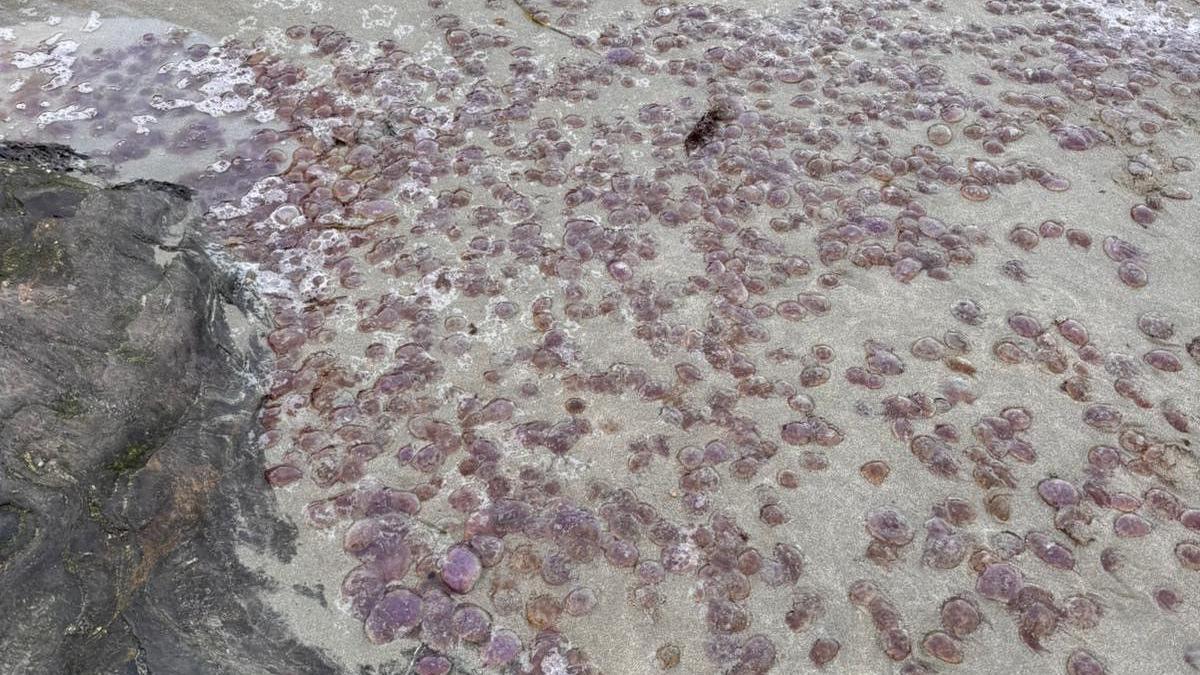
Dr McQuatters-Gollop said jellyfish do not have the ability to regulate their temperature
- Published
Scientists believe an "unprecedented" number of dead jellyfish that stranded along the Cornish coast may have been caused by a cold snap.
Thousands of mauve stingers, or Pelagia noctiluca, washed up along Carne beach on the Roseland peninsula last Saturday.
Dr Abigail McQuatters-Gollop, associate professor of marine conservation at the University of Plymouth, said the stranding was "really surprising" and could have been caused by a combination of ocean currents, wind and a drop in the temperature.
Becks Allen, from Cornwall Wildlife Trust, said: "It's a fairly unprecedented number of washed-up jellyfish."
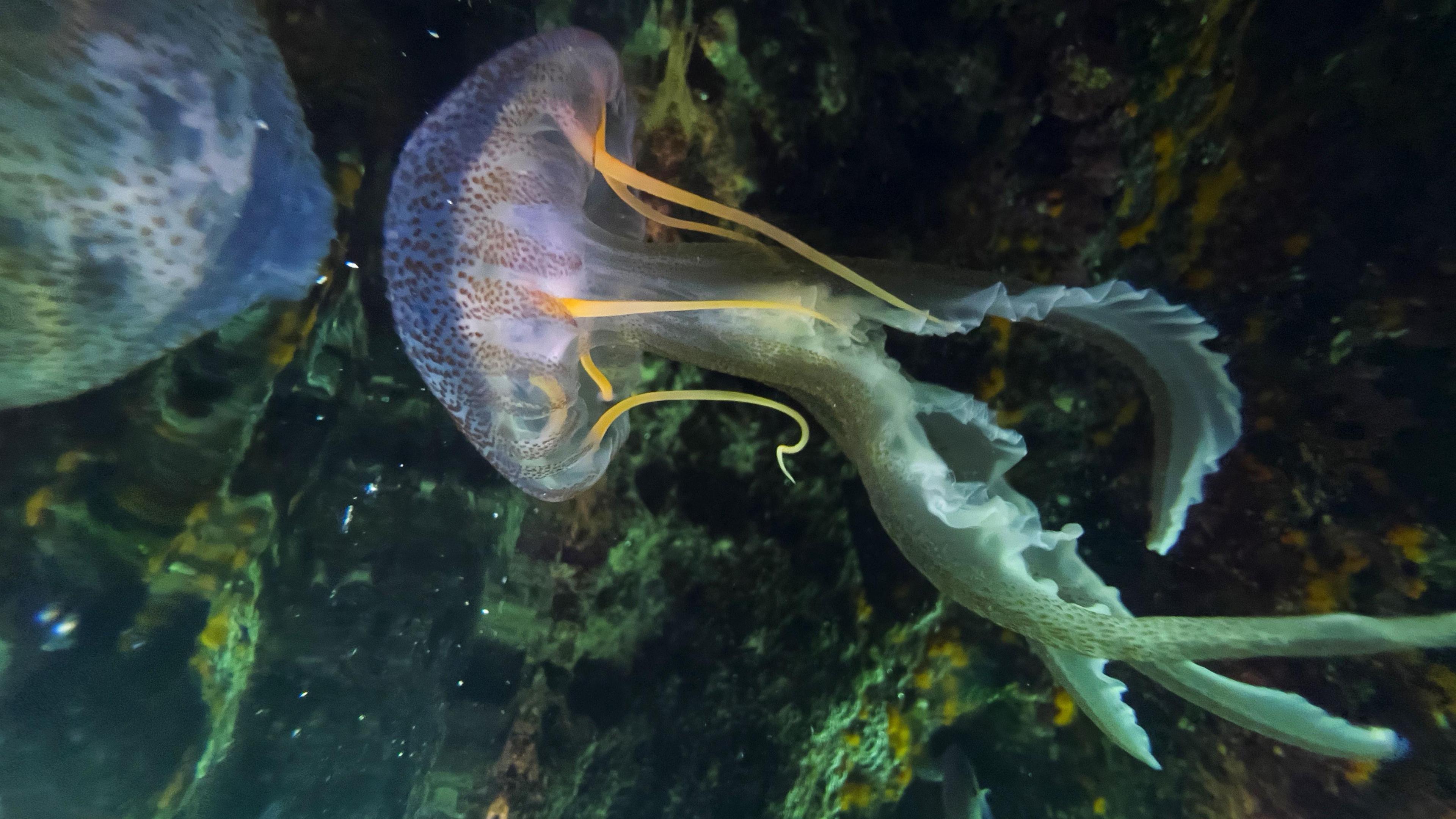
Pelagia noctiluca are common to the UK, Ireland and the Mediterranean
Dr McQuatters-Gollop said jellyfish have no control over where they swim and were likely grouped together by the wind.
"The quantity of jellyfish was amazing, but the fact they were all washed up at the same time together I thought was really surprising - I've never seen anything like that," she said.
"They are at the mercy of the currents, but that includes storm events and winds, and I feel like that's why they were in such an aggregation."
Pelagia noctiluca are common to the UK, Ireland and the Mediterranean.
Dr McQuatters-Gollop said a recent cold snap could have led to their deaths as jellyfish, unlike mammals, do not have the ability to regulate their body temperature.
Ms Allen said people had reported the stranding to the wildlife trust.

Jellyfish do not have control over where they travel, Dr McQuatters-Gollop said
Vicki Spooner, who works for Falmouth Harbour, was surveying the seabed on Thursday near Swanpool and Gyllynvase beaches when she was "amazed to see high concentrations of mauve stinger jellyfish".
"Although beautiful to look at from a boat, these jellyfish do cause a sting, so wild swimmers without a wetsuit would be wise to avoid them," she said.
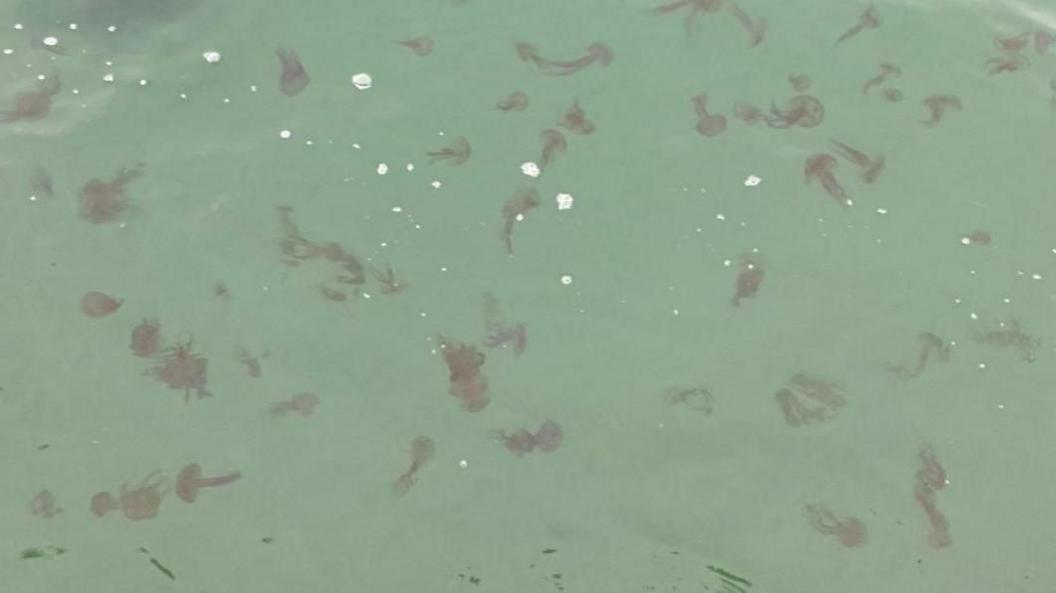
Vicki Spooner from Falmouth Harbour recommend swimmers wear a wetsuit to avoid stings
BBC reporter Martha Dixon was stung by mauve stingers while swimming off Swanpool beach last week.
She said: "The jellyfish were tiny but it was a like a soup, they were everywhere.
"I happily swim amongst jellyfish all the time, as they normally feel only like stinging nettles.
"But this was completely different. I got a shock of a sting across my lower cheek and I couldn't really sleep as it felt like it was on fire for two or three nights."
Ms Dixon said the blister took 10 days to heal but she would continue to swim in the sea.
"Nothing will keep me out of the water and nothing should keep others out of the water either," she added.
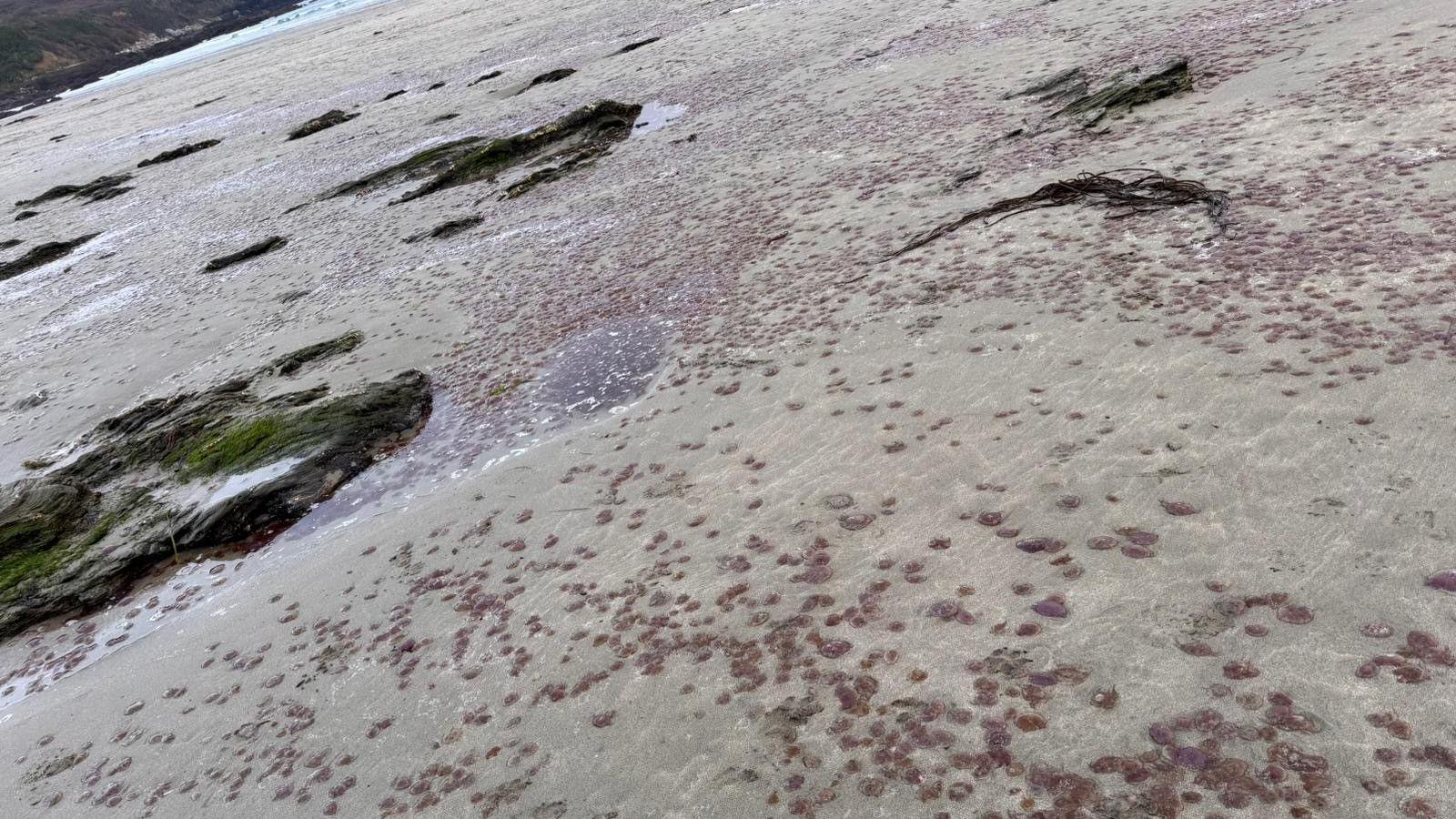
BBC reporter Martha Dixon said the sea was "like a soup" of jellyfish when she went swimming
Dr McQuatters-Gollop said the capabilities of jellyfish were "amazing".
"They can lose a body part and regenerate it, so scientists are studying that. Can this somehow be used for humans?" she said.
"What if we could figure that mechanism out and we could grow tissue and organs?"
Follow BBC Cornwall on X, external, Facebook, external and Instagram, external. Follow BBC Devon on X, external, Facebook, external and Instagram, external. Send your story ideas to spotlight@bbc.co.uk, external.
- Published30 September 2024
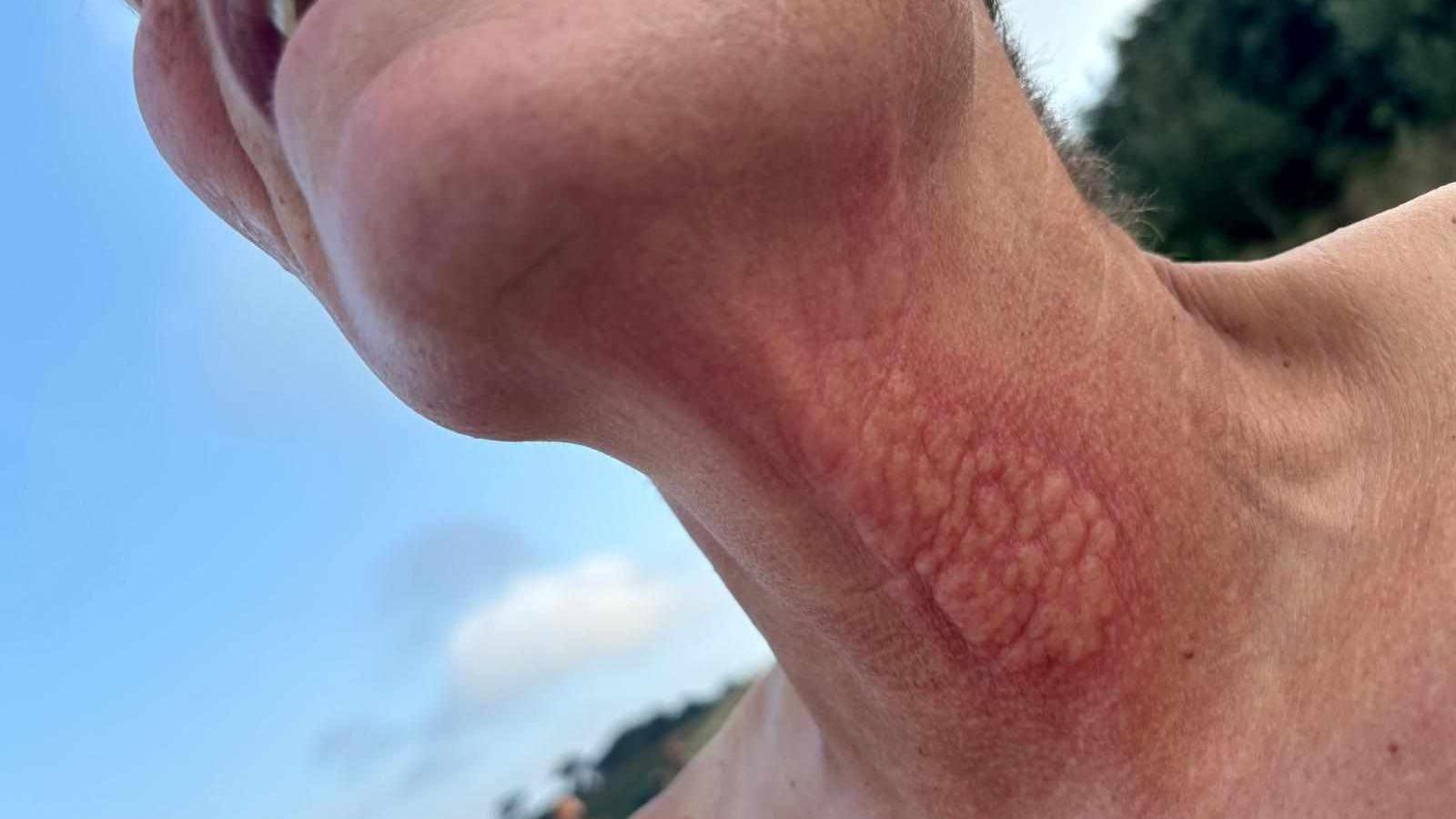
- Published11 September 2023
